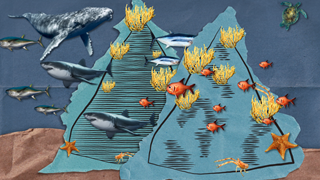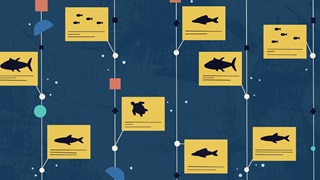5 Pew-Stewart Scholars Chosen to Advance Cutting-Edge Cancer Research
PHILADELPHIA—The Pew Charitable Trusts and the Alexander and Margaret Stewart Trust announced today the 2021 class of the Pew-Stewart Scholars Program for Cancer Research.
The five early-career scholars who comprise the 2021 class will each receive a four-year grant to advance cutting-edge research into the development, diagnosis, and treatment of cancer. This is the eighth year that the Alexander and Margaret Stewart Trust has partnered with Pew to support researchers as they investigate breakthroughs to advance treatments and cures for the complex disease.
“Cancer remains one of the world’s greatest health challenges, requiring new perspectives and ongoing exploration,” said Susan K. Urahn, Pew’s president and CEO. “Pew is proud to support these promising researchers as they take on new strategies to uncover a cure.”
Members of the 2021 class will spearhead specific cancer-related investigations, including computational methods to predict a patient’s response to immunotherapy, regulatory factors that influence cancer gene expression, and the mechanism of disease relapse in acute myeloid leukemia.
“With great ingenuity, these new scholars offer diverse approaches that will help affect our understanding of cancer and advance prevention and treatment,” said Peter M. Howley, M.D., chair of the Pew-Stewart national advisory committee. “I am confident that they will bring us closer to a cancer-free world.”
The 2021 Pew-Stewart Scholars for Cancer Research are:
Francine Garrett-Bakelman, M.D., Ph.D.
University of Virginia
Dr. Garrett-Bakelman will determine the role of the CEBPD protein on disease relapse in patients with acute myeloid leukemia.
Anders Sejr Hansen, Ph.D.
Massachusetts Institute of Technology
Dr. Hansen will investigate how genetic elements, known as enhancers, control the expression of distant genes in cancer.
Ansuman Satpathy, M.D., Ph.D.
Stanford University
Dr. Satpathy will investigate the genetic mechanisms of T-cell exhaustion, a phenomenon that arises with chronic immune stimulation during infections and cancers.
David Van Valen, M.D., Ph.D.
California Institute of Technology
Dr. Van Valen will develop computational methods to predict how patients will respond to cancer immunotherapy.
Liling Wan, Ph.D.
University of Pennsylvania
Dr. Wan will investigate how assemblies of proteins come together to regulate the expression of genes and how dysregulation of this process contributes to cancer.











